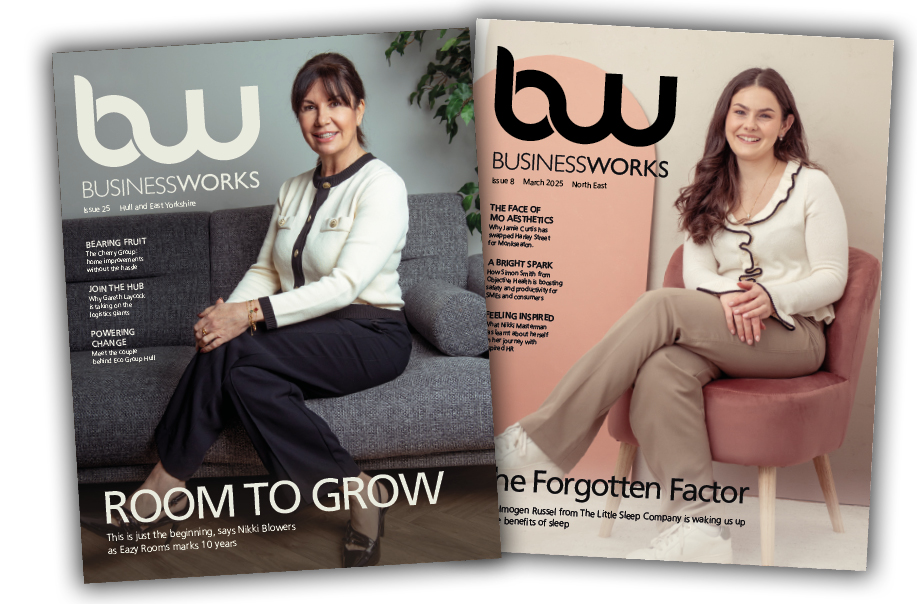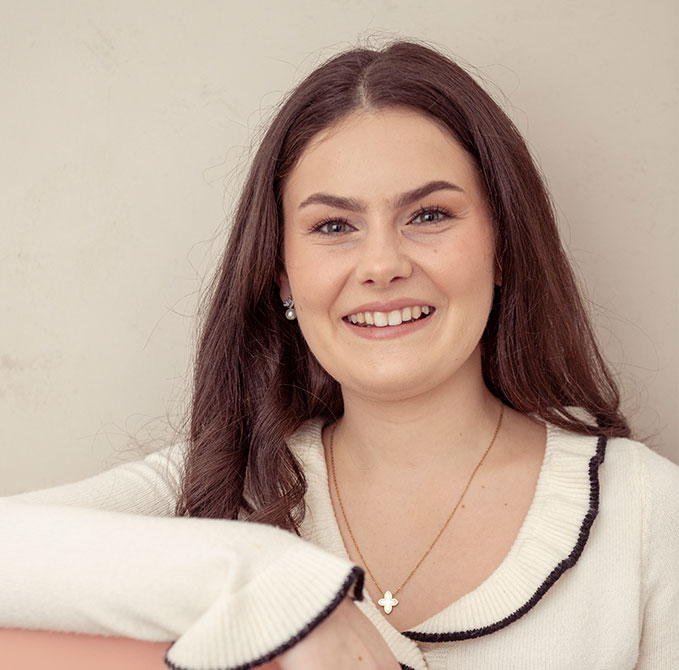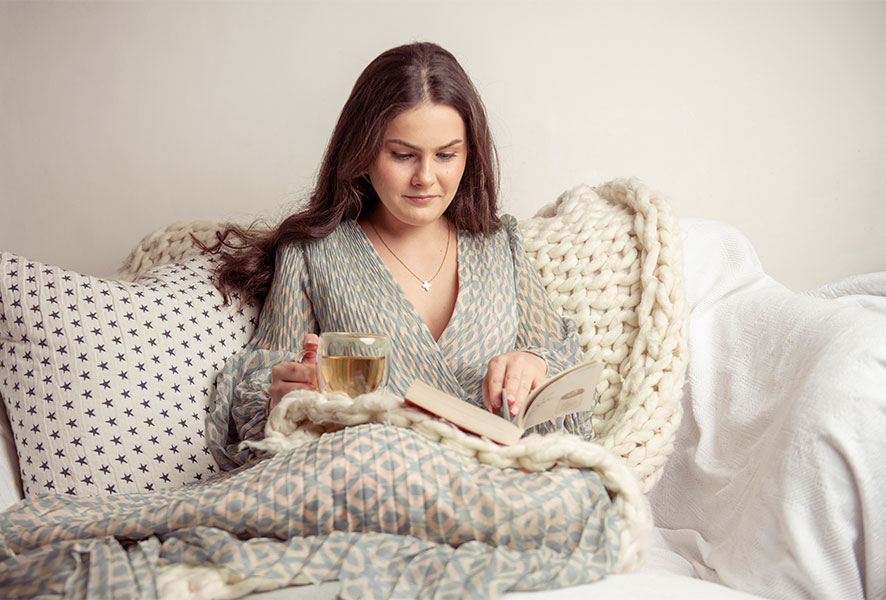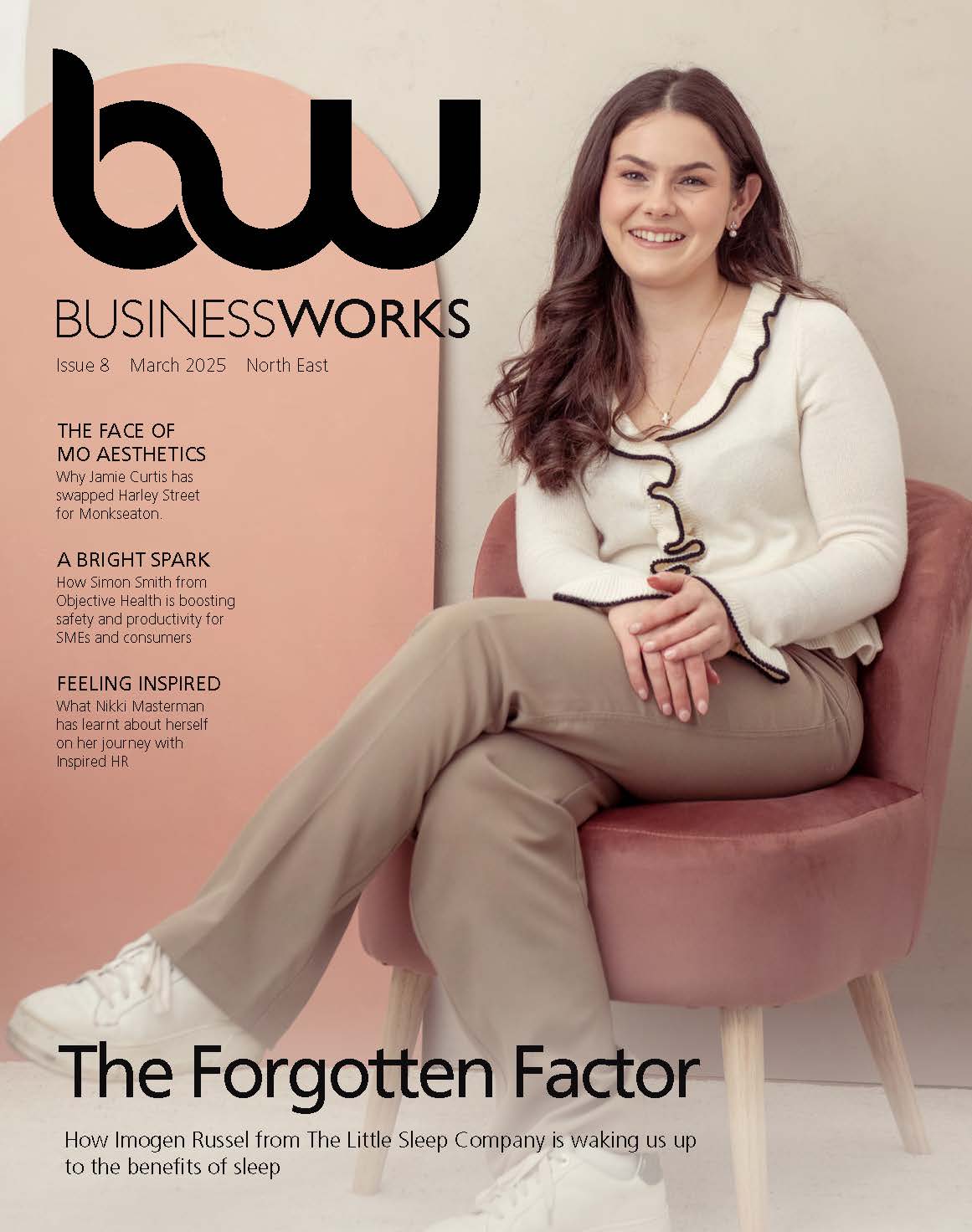Imogen Russel, 25, founder of The Little Sleep Company, emphasises the critical role of sleep in health alongside nutrition and exercise. Dedicated to solving sleep challenges for families, she shares insights from her business journey with Alison Cowie.
Imogen Russell knew she wanted to work with young people and, when she was young, aspired to be a teacher.
However, gaining experience working as a teaching assistant led her to rethink her choice.
Instead, Imogen – who was born in Northamptonshire and grew up in Cumbria – enrolled at Northumbria University to study a degree in psychology.
While completing her studies, Imogen decided to complete a training course for infant sleep.
She explains: “My godmother was a sleep consultant and it was through her that I discovered this world.
“The further I got into it, the more I realised sleep is central to physical and social health but, despite this, it’s often seen as the ‘forgotten factor’.”
Imogen registered a business as a sole trader under the name – The Little Sleep Company – and by the time she completed the course, Imogen knew her future lay in helping children achieve a better night’s sleep.
“When you look at it from a child development perspective, you see just how impactful each bit of sleep they get has on their growth and their experience of life and the skills that they can develop,” she adds.
Imogen joined the incubator space at Northumbria University where she was able to access expert business mentorship and financial help to develop her business while she completed her degree.
Imogen says it took a while before she felt she had the business acumen and the expert knowledge in the science of sleep to offer her consultancy service through The Little Sleep Company.
In January 2022 she registered as a limited company after spending time working as a nanny.
Imogen now provides compassionate consultancy services to families to help get sleep back on track and feel more in control and energised.
On average, she will work with a family on a one-to-one basis for around three weeks, communicating via online calls and email.
Imogen will help the family identify how much sleep a child is getting and will look at a range of factors such as temperament, personality, nutrition and attachment. She will then suggest a bespoke package of tips and tools for families to use.
“It’s not about forcing someone to go to sleep,” Imogen explains. “That’s something that can’t be done. Instead, I use gentle, holistic, responsive, attachment-focused tools so that a family can be ‘co-regulated’, which is a posh way of saying feelings of calm.
The business owner continues: “Calm is the precursor to sleep and so by creating a calming environment you’re supporting the best opportunity for a family to achieve the best biological sleep they can.”
Imogen says there’s too much pressure around a child sleeping through the night and unrealistic expectations are often set.
“People think you should be able to pop a baby down and they will happily go to sleep all night. But the reality is that only 6% of six-month-olds sleep six hours in one chunk. That means 94% of babies wake up more than every six hours.
“Self-settling is also a very complex, high order mental function which doesn’t fully develop until young adulthood.”
Just one example of a tool that Imogen uses with families is the Ribbon Trick, as she explains:
“The Ribbon Trick is where a child holds one end of a length of ribbon and a parent has the other. This creates a connection between the two.
At first, the child and parent will be close together but gradually, over time, the parent will move further away until they’re outside the child’s room but there is still a connection with the ribbon. Eventually, the ribbon is taken away and imagined instead.
“It’s a really nice tangible way for toddlers to grasp that safety and connection with their parents.”
While Imogen’s advice tends to centre on a child’s sleep, she is well aware of the impact on the wider family – especially on parents and carers who are balancing family life with a career.
“Less than five hours sleep is the equivalent to being drunk,” says Imogen. “So this can have huge implications for parents and carers at work – especially those operating in high performance industries.”
Imogen also works directly with organisations and businesses that want to support new parents and carers as a way of enhancing productivity, increasing awareness of the importance of sleep, and boosting employees’ retention.
“New parents who have a child, either biologically or through adoption, will usually have a period of maternity or paternity leave. But, when they go back to work, they’re expected to get on as normal when actually things can feel a bit wild at home as they contend with infant sleep.”
Imogen now works with businesses to either deliver training directly to new parents – providing them with proven advice on how to promote more healthy biological sleep in the home – or by training management teams on how to spot the signs of sleep deprivation in their workforces.
“It’s all about understanding what’s going on and scaffolding with the right support when necessary,” she adds.
Imogen’s expertise has also led her to partner with one of the leading family brands, Mamas & Papas UK.
The collaboration came after a suggestion from one of Imogen’s business mentors at Northumbria University.
“My mentor said I needed to expand my network so I sent a LinkedIn message to Nathan Williams, the CEO of Mamas & Papas. I never expected to get a response but he got back to me straight away and suggested a meeting, which certainly came as a surprise!”
Imogen now works with the nursery brand and manufacturer of prams, pushchairs and baby products as its resident sleep expert, developing content and resources to help new parents better manage sleep routines for their children.
“The partnership has been amazing and it’s opened lots of doors and avenues for different things,” she adds.
The sleep specialist is now working with The King’s Trust (formerly The Prince’s Trust) and is advising a hospitality chain on how to design family rooms that provide an optimal environment for biological sleep. She also reveals that she has had several productive meetings with large public sector organisations about her delivering training to staff.
Imogen has also developed a range of sleep guides that won a gold award at inaugural The Mum Marketplace (TMM) Awards late last year.
Having only just turned 25, Imogen has worked incredibly hard and achieved an impressive amount with The Little Sleep Company. But she describes running her own business as a “journey” in which “work and life are intertwined”.
In order to maintain a better work-life balance, Imogen and her partner recently went travelling in South America for three months.
During the life-affirming trip, the couple visited six countries where they soaked up the cultures and made memories – while Imogen continued to deliver her consultancy services online.
Looking to the future, Imogen would like to work with more businesses and organisations, especially employers operating in safety-critical areas such as aviation and the military.
Imogen would also like to hire employees who can help to deliver her sleep support and allow her more time to focus on delivering her mission of ‘changing the way parents experience sleep.”
“At the moment I’m happy developing the company as a sole venture in a way that’s right for me, the business and my clients but 2025 is going to be an exciting year of growth.”
It seems Imogen is wide awake when it comes to understanding what she wants to achieve with The Little Sleep Company.
For more information on The Little Sleep Company, visit www.thelittlesleepcompany.com





